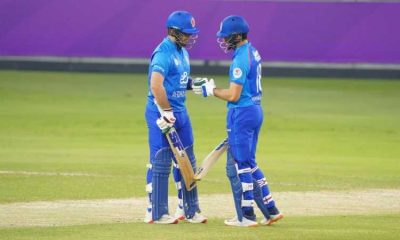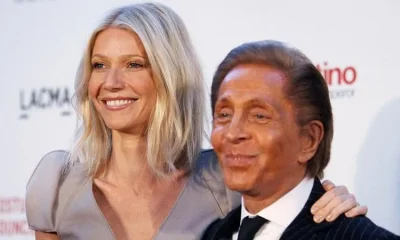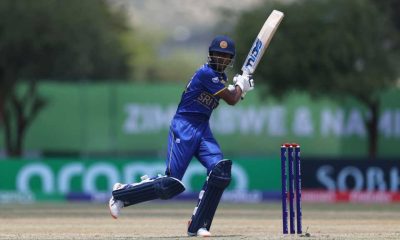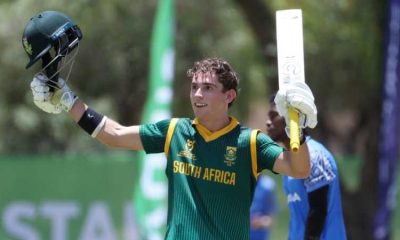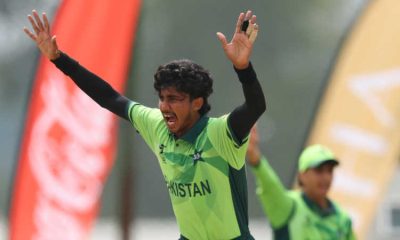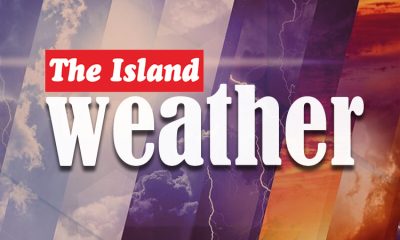News
UNICEF reveals UK hogs mountain of surplus vaccines while poor nations are crying out for help

While Sri Lanka is stuggling to procure 600,000 AstraZeneca doses needed for the second jab, the UNICEF yesterday (12) reported that the United Kingdom had a massive surplus of vaccines.
UNICEF said that the UK should give away a fifth of its Covid vaccines to help poorer countries protect their citizens. The British media reported that the UK has ordered 517million doses though it required around 160m to vaccinate all adults and give them booster jabs in the autumn, as planned.
Analysis by the UK arm of the United Nations Children’s Fund asserted that the country could have enough leftover doses to fully vaccinate 50m people – the population of Spain or South Korea.
And if all the vaccines currently in trials are approved this would soar to 115m, it said – almost double the population of South Africa.
Campaigners warned hogging vaccines and allowing the virus to continue spreading elsewhere would raise the risk of a new variant emerging and coming back to wreak havoc in Britain.
UNICEF said Britain could share 20 per cent of its current supply and still hit its goal of offering every adult a vaccine by the end of July. It claimed the UK could reach the target by July 9 and sharing the doses would only push it back by 10 days.
‘Unless the UK urgently starts sharing its available doses to ensure others around the world are protected from the virus, the UK will not be safe from Covid,’ said UNICEF UK’s Joanna Rea.
Two thirds of adults in the UK have now had at least one vaccine dose and almost 18million are fully vaccinated. Real-world data suggests the jabs prevent eight to nine out of 10 severe Covid cases, almost all deaths and also slash transmission of the virus by half
UNICEF estimated that Britain could give away 20 per cent of its projected available stock and still meet its target to give all adults their first dose of vaccine by the end of July.
But it is not clear how many vaccines the UK is currently sitting on because of commercial agreements to keep the figures private.
The only data provided is the number of doses of each jab that have been dished out — 28.5million of AstraZeneca, 19.5m of Pfizer and 100,000 of Moderna.
The charity warned that the success of the vaccination programme in the UK could be ‘reversed’ if supply is not shared.
Concerns have been raised that while the virus rages in other parts of the world there is more chance for new variants to emerge.
And experts have suggested that new variants could potentially escape the protection afforded by the vaccines.
UNICEF UK called on the Government and other G7 countries – Canada, France, Germany, Italy, Japan and the US – to start sharing vaccines through Covax from June.
Ms Rea said: ‘The UK has done a fantastic job in rolling out Covid vaccines to more than half of its adult population and we should all be proud of what has been achieved.
‘However, we can’t ignore that the UK and other G7 countries have purchased over a third of the world’s vaccine supply, despite making up only 13 per cent of the global population – and we risk leaving low-income countries behind.
‘Unless the UK urgently starts sharing its available doses to ensure others around the world are protected from the virus, the UK will not be safe from Covid-19.
‘Our vaccine rollout success could be reversed and the NHS could be fighting another wave of the virus due to deadly mutations.’
On Monday Professor Chris Whitty, chief medical officer for England, said the way to prevent or minimise the number of new variants is to ‘get on top of’ the pandemic globally.
And the World Health Organization said there was a ‘shocking disparity’ in access to Covid vaccines between rich and poor countries.
WHO director general Dr Tedros Adhanom Ghebreyesus told a press briefing: ‘The shocking global disparity in access to Covid vaccines remains one of the biggest risks to ending the pandemic.
‘High and upper-middle income countries represent 53 per cent of the world’s population, but have received 83 per cent of the world’s vaccines.
‘By contrast, low and lower-middle income countries account for 47 per cent of the world’s population, but have received just 17 per cent of the world’s vaccines.’
He added: ‘How quickly we end the Covid pandemic and how many sisters and brothers we lose along on the way, depends on how quickly and how fairly we vaccinate a significant proportion of the population and how consistently we all follow proven public health measures.’
News
Power sector overhaul targets losses, debt and tariffs
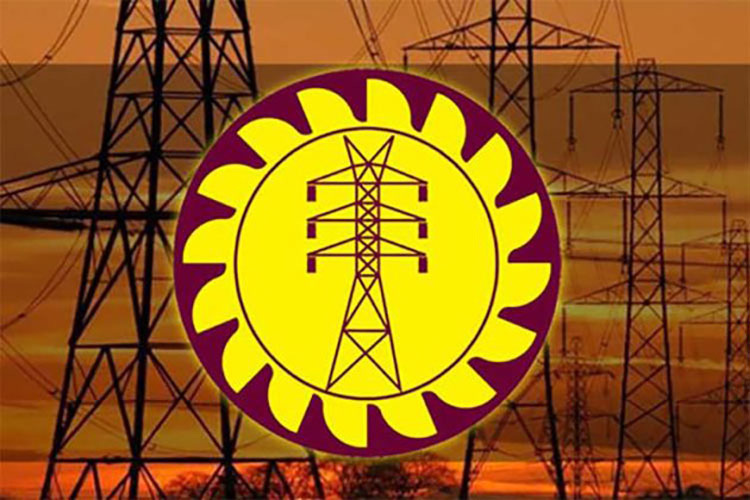
Independent trade unions cry foul
The government has launched a far-reaching overhaul of the electricity industry, breaking up the Ceylon Electricity Board (CEB) into six fully state-owned companies, claiming to rein in chronic losses and mounting debt.
Under the Preliminary Transfer Plan, the newly incorporated entities, namely, Electricity Generation Lanka (Pvt) Ltd (EGL), National Transmission Network Service Provider (Pvt) Ltd (NTNSP), National System Operator (Pvt) Ltd (NSO), Electricity Distribution Lanka (Pvt) Ltd (EDL), CEB Employees Funds (Pvt) Ltd (CEBEF) and Energy Ventures Lanka (Pvt) Ltd (EVL), will take over the assets, liabilities and operations of the CEB from the appointed date.
Independent trade unions have opposed the restructuring programme.
At the core of the new model is the creation of an independent National System Operator, which will handle power system planning and competitively procure electricity from Electricity Generation Lanka, Independent Power Producers and non-conventional renewable energy developers. Power will be wheeled through the national grid operated by the NTNSP and sold to distribution companies.
Explaining the economic rationale, Eng. Pubudu Niroshan Hedigallage said the separation of functions was critical to restoring cost discipline in the sector.
“Electricity planning and procurement will now be carried out independently, based on least-cost principles. That is essential if we are to control generation costs and ease the upward pressure on tariffs,” he said.
Electricity Generation Lanka, though a successor to the CEB, will compete with private and renewable energy producers for projects, a move expected to curb inefficiencies and end guaranteed returns enjoyed under earlier arrangements.
“There will be no automatic allocation of projects. EGL must compete in the market like any other generator,” Eng. Hedigallage said.
According to officials, the Preliminary Transfer Plan provides for one generation and one distribution company initially, with further unbundling planned under the Final Transfer Plan to introduce sharper financial accountability at operational level.
Economists note that the restructuring is closely watched by multilateral lenders and investors, who have repeatedly flagged the power sector as a major fiscal risk.
The government has insisted that the reforms do not amount to privatisation, stressing that all six entities remain 100 percent state-owned. However, independent trade unions are of the view that what the government has undertaken is divestiture in all but name.
By Ifham Nizam
News
India, Sri Lanka speakers discuss technology-driven parliamentary innovation, including AI-enabled systems
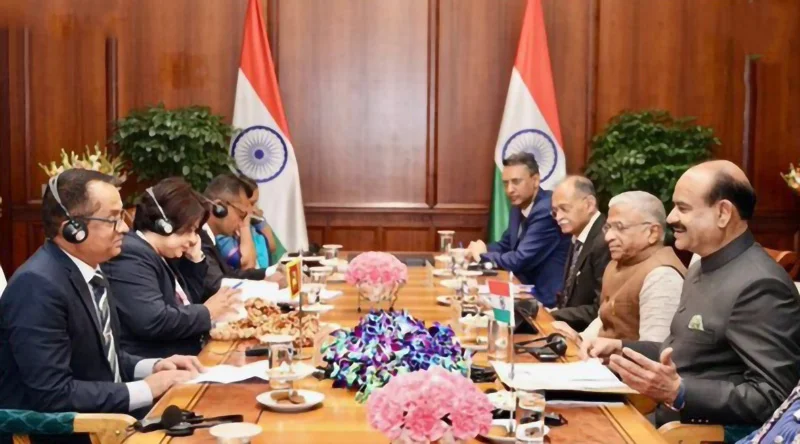
Speaker of Lok Sabha Om Birla and Sri Lankan Speaker (Dr.) Jagath Wickramaratne recently discussed the possibility of expanding parliamentary cooperation through regular exchanges, formation of friendship groups, collaboration in policy and programme design and deeper engagement in technology-driven parliamentary innovation, including AI-enabled systems, real-time multilingual translation, and capacity building through Parliamentary Research and Training Institute for Democracies (PRIDE).
The discussion took place on the sidelines of the 28th Conference of Speakers and Presiding Officers of the Commonwealth (CSPOC) held in New Delhi recently.
The following is the text of the statement issued by the Indian High Commission in Colombo: ” Speaker of the Parliament of Sri Lanka (Dr.) Jagath Wickramaratne concluded his visit to India from 14-18 January 2026, for participation in the 28th Conference of Speakers and Presiding Officers of the Commonwealth (CSPOC) held in New Delhi. This was his first visit to India after assuming office. He was accompanied by Secretary-General of Parliament Kushani Rohanadeera and Assistant Director, (Administration) of the Parliament of Sri Lanka Kanchana Ruchitha Herath. Following the 28th CSPOC from 14-16 January 2026, Speaker and his delegation visited Jaipur, Rajasthan as a part of a two-day tour for CSPOC delegates from 17-18 January 2026.
The 28th CSPOC was inaugurated by Prime Minister of India Narendra Modi on 15 January 2026 at the Central Hall of Samvidhan Sadan, Parliament House Complex, New Delhi. Welcoming parliamentary leaders from across the Commonwealth, Prime Minister Modi highlighted the success of Indian democracy in providing stability, speed, and scale. He shared India’s efforts at giving voice to the Global South and forging new paths of cooperation to co-develop innovation ecosystems. He underlined the use of Artificial Intelligence by the Parliament of India to attract youth to understand Parliament. Prime Minister expressed his confidence in the CSPOC platform for exploring ways to promote knowledge and understanding of parliamentary democracy.
The conference, chaired by Lok Sabha Speaker Om Birla, convened 44 Speakers and 15 Deputy Speakers from 41 Commonwealth countries, along with representatives of four semi-autonomous Parliaments. The theme of the conference was “Effective Delivery of Parliamentary Democracy.” During the conference, participants addressed the role of Speakers in reinforcing democratic institutions, the integration of artificial intelligence in Parliamentary functions, the influence of social media on Members, approaches to enhance public engagement with Parliament, and measures to ensure the security, health, and wellbeing of Members and Parliamentary staff.
The visit marked a significant milestone in the evolving parliamentary partnership between India and Sri Lanka. Last year, two Parliamentary Delegations visited India for Orientation Programmes in May 2025 and August 2025 respectively. These visits, in line with the intent of the India – Sri Lanka Joint Statement on ‘Fostering Partnerships for a Shared Future’, further reinforce the strong democratic ethos and enduring friendship shared between the two nations.”
News
Pakistan HC celebrates academic achievements of Lankan graduates
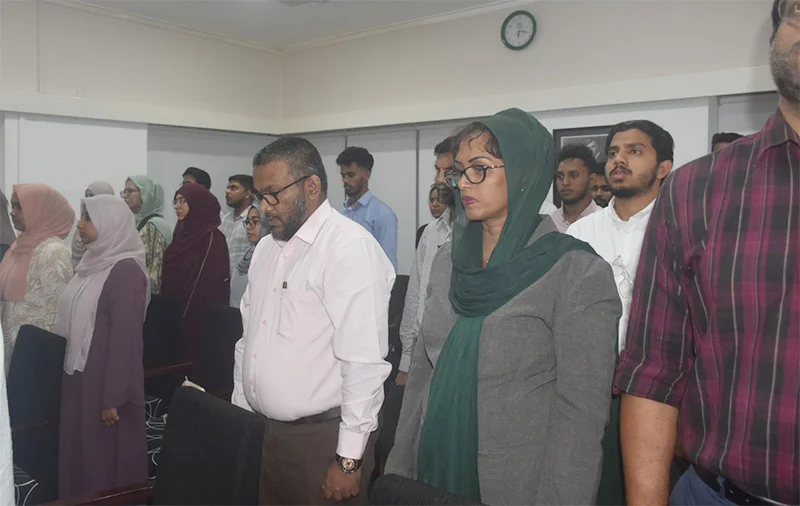
The High Commissioner of Pakistan in Sri Lanka hosted a special reception on Friday (16) for Sri Lankan alumni who have recently returned from their studies in Pakistan. The event, held at the Pakistan High Commission, celebrated the academic achievements of the graduates and reinforced the deep-rooted educational ties between the two nations.
The Allama Iqbal Scholarship Programme, a flagship initiative launched in 2019, has become a vital pillar of bilateral cooperation. The High Commissioner highlighted that Pakistan offers 1,000 fully funded scholarships at graduate, postgraduate, and PhD levels, with over 500 Sri Lankan students currently pursuing their education in Pakistan’s premier universities.
“Sri Lanka and Pakistan share an enduring friendship rooted in a shared history of mutual respect and culture,” the High Commissioner remarked during the address. “Education is the key to unlocking the success of your brilliant futures and creating bonds that extend well beyond the classroom”.
Addressing the alumni as “custodians” of a noble cause, the High Commissioner urged the alumni to act as brand ambassadors by sharing their knowledge to guide deserving students toward academic opportunities in Pakistan.
He emphasised their responsibility to mentor young minds, ensuring no capable student misses the chance for a promising future. Furthermore, the alumni were encouraged to take an active role in organising frequent educational and cultural engagements to inspire and enlighten others while strengthening the ties between the two nations.
The High Commissioner emphasized that each graduate serves as a “bridge” between the two countries, playing a meaningful role in uplifting Sri Lanka while further strengthening Pakistan–Sri Lanka relations. The alumni were invited to remain closely connected with the High Commission to facilitate future initiatives that strengthen people-to-people ties.
The evening concluded with a traditional Pakistani dinner, where the alumni shared stories of their academic growth and cultural experiences in Pakistan in a spirit of friendship and togetherness.
-

 Editorial2 days ago
Editorial2 days agoIllusory rule of law
-

 News3 days ago
News3 days agoUNDP’s assessment confirms widespread economic fallout from Cyclone Ditwah
-

 Business5 days ago
Business5 days agoKoaloo.Fi and Stredge forge strategic partnership to offer businesses sustainable supply chain solutions
-

 Editorial3 days ago
Editorial3 days agoCrime and cops
-

 Features2 days ago
Features2 days agoDaydreams on a winter’s day
-

 Editorial4 days ago
Editorial4 days agoThe Chakka Clash
-

 Features2 days ago
Features2 days agoSurprise move of both the Minister and myself from Agriculture to Education
-

 Features1 day ago
Features1 day agoExtended mind thesis:A Buddhist perspective


